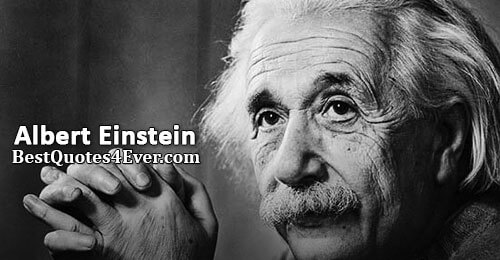 | BiographyType: Physicist Born: 14 March 1879 Died: 18 April 1955 Albert Einstein, (born March 14, 1879, Ulm, Württemberg, Germany—died April 18, 1955, Princeton, New Jersey, U.S.), German-born physicist who developed the special and general theories of relativity and won the Nobel Prize for Physics in 1921 for his explanation of the photoelectric effect. Einstein is generally considered the most influential physicist of the 20th century. Near the beginning of his career, Einstein thought that Newtonian mechanics was no longer enough to reconcile the laws of classical mechanics with the laws of the electromagnetic field. |
It is, in fact, nothing short of a miracle that the modern methods of instruction have not yet entirely strangled the holy curiosity of inquiry; for this delicate little plant, aside from stimulation, stands mainly in need of freedom. Without this it goes to wrack and ruin without fail.
Teaching should be such that what is offered is perceived as a valuable gift and not as hard duty. Never regard study as duty but as the enviable opportunity to learn to know the liberating influence of beauty in the realm of the spirit for your own personal joy and to the profit of the community to which your later work belongs.
Combinatory play seems to be the essential feature in productive thought.
Education is not the learning of facts, but the training of the mind to think.
Science without religion is lame, religion without science is blind.
If there is any religion that could respond to the needs of modern science, it would be Buddhism.
It is this mythical, or rather symbolic, content of the religious traditions which is likely to come into conflict with science. This occurs whenever this religious stock of ideas contains dogmatically fixed statements on subjects which belong in the domain of science.
How can cosmic religious feeling be communicated from one person to another, if it can give rise to no definite notion of a God and no theology? In my view, it is the most important function of art and science to awaken this feeling and keep it alive in those who are receptive to it.
I maintain that the cosmic religious feeling is the strongest and noblest motive for scientific research.
Phantasie ist wichtiger als Wissen, denn Wissen ist begrenzt.
There can be no positive
result through negative
attitude. Think positive. Live positive.
But without deeper reflection one knows from daily life that one exists for other people-first of all for those upon whose smiles and well-being our own happiness is wholly dependent, and then for the many, unknown to us, to whose destinies we are bound by the ties of sympathy.